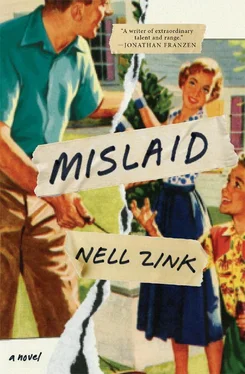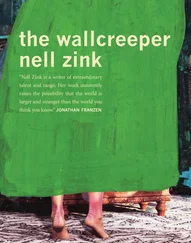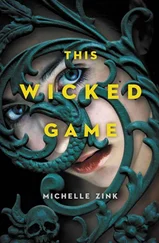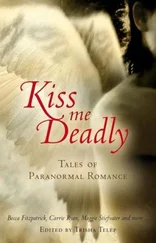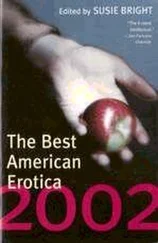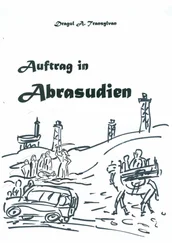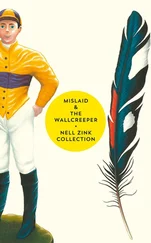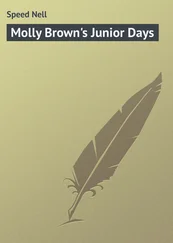Temple’s father, Ike Moody, also looked to the future. He expected a socialist revolution. His leftism was securely closeted. Even Dee didn’t know the extent of it. From attending party meetings and summer camps, he had acquired an excellent grasp of dialectics as a process — enough to get him blackballed from the draft, the lumberyard, the cannery, etc. — but he always had trouble with historical details. He could sort of read. As a speller he was adrift in a no-man’s-land between phonetic and dyslexic. For many years he had held a responsible position in a black-owned junkyard, selling auto parts and secondhand inspection stickers, before it was closed down for being an eyesore and an environmental hazard. Now it lay under a thick blanket of kudzu, and he and his two older sons worked nonunion construction jobs all over the state, often staying in campgrounds.
Temple was their youngest. His sister, Janice, was also still in school and had come along to Centerville. She was regarded as a strong candidate for Fall Festival Queen. She had ways and means, including hot pants that were mink in the front and suede in back. Dee would shake her head, roll her eyes, administer firm warnings, and placidly watch her fifteen-year-old daughter climb into a car with four adult men to attend a go-go concert three hours away in Washington, DC. “I was just exactly like her to a T,” Dee explained. “She’ll put it behind her.” Meg agreed that it was probably a phase.
Dee sometimes drove Temple and Karen all the way across the James to read books in a public library. Her home library was risqué, consisting of pulp pornography for women disguised as self-help books: the horoscope of love, housekeeping with love, etc. Meg hadn’t known there was such a thing. She thought women’s pornography always promoted slatternly behavior, happy hookers and zipless fucks and so on. In love horoscopes, women were the stars, and their key concern in life was finding the ideal partner. The Aries man would be too rushed for the Gemini woman, but the Cancer man would slowly part her etc. and fondle her etc. Janice studied the books closely, and Meg couldn’t fault Dee for letting her.
Dee’s condoning of sexual freedom in children did not extend to her sons. If and when family planning is the responsibility of females, males are best kept under lock and key. She was proud to have no grandbabies yet. In her analysis of heterosexuality she resembled Lee.
As Karen’s classmates approached puberty, Meg realized she hadn’t thought things out very far in advance.
She thanked God for Dee and Temple. She could not imagine letting Karen play with any of the other boys, much less date them. They were very clever in their wry self-commentaries, but no good in school. Their curiosity about sex took a hands-on approach. Whereas Temple, disdaining his mother’s collection, informed himself by reading the classics. The poem “In My Craft or Sullen Art” he found especially hot. At thirteen he lay abed with visions of the raging moon. Meg could tell because he refused to recite it no matter how much she teased him.
Janice felt his geekiness might be healed with judicious application of popular culture. By the time he was fifteen, she couldn’t take it anymore. She took him to see Purple Rain . The cinema was in a black part of Suffolk. The dancing started during the opening credits, and you had to get down (that is, stand up) to see much of anything. She was pleased to see that after a quart of grape soda he was not short on moves. But she had not reckoned with the artistic and philosophical repercussions. Temple emerged from the theater electrified, ecstatic, abashed, unable to say precisely what had excited him so much. He avoided eye contact. When they got home he headed straight into the courtyard and began improvising rock songs, stomping his foot to keep time. He chanted his lyrics in a monotone falsetto while waiting for the school bus. Janice hung her head.
A council of the elders was called. It was decided that Meg would take Temple to see a showing of My Dinner with Andre in Norfolk. A huge risk, but Meg adored him enough to put on her sunglasses and watch cap and drive him to a city — something she had never done for Karen. Temple floated out of the theater on gossamer wings, silent, thoughtful, and more bookish than ever.
Meg was moved by the movie from beginning to end. Why hadn’t the intellectuals she met ever been that nice? She remembered the role she had played in real-life dinners with real-life Andres: combination cook, waiter, and busboy. The part where Andre describes being buried alive reminded her of her whole life.
She introduced Temple to Samuel Beckett. As he and Karen stood out in the weeds, rehearsing his travesty Waiting for Dogot with Cha Cha, she felt so proud her heart would break. Not of Karen. Her daughter lacked stage presence. Her reedy voice reached the kitchen window without a trace of projection or resonance. To see an actress in Karen, you had to be charitable and use your imagination. It was the larger-than-life presence of Temple that moved Meg as she watched him arrange props on a cable spool, rolled two hundred yards down the shoulder from the Centerville construction site’s impromptu dump, to furnish his set for Crap’s Last Tapeworm .
Dee approved of Meg’s influence. She remarked that her studious son would be the next Thurgood Marshall.
Ike said, “Not if he can’t get his nose out of a book he ain’t.”
Dee laughed at Ike and said to Meg, “He doesn’t know where I got this egghead boy, but the other boys take after him so much. I said it’s time a woman had a son for a change.”
Meg said she was down with that.
Temple’s first great love was a white girl in the drama club whose father had a hereditary union job with the power company. “Union job” was a phrase redolent of wealth and luxury. Her expensive clothes fit perfectly. She had flunked two grades, so she was the most physically mature girl in the entire “academic” track. She did not fear Temple’s dark skin. What troubled her was his prose. Being too shy to speak to her, he wrote letters. Close-written pages, front and back, torn from a spiral notebook. She felt she had a sex slave for the asking: a boy of whom she could ask absolute devotion, offering no social acknowledgment in return. No hand-holding, no publicity, no parental interference. It was an alluring prospect. But she couldn’t make sense of the letters. She brought them to Karen for interpretation.
Sitting with the girl in the school’s new media center, Karen read over a typical passage:
You are my Beatrice, my Odette. The passion that rules my nights, the vise grip on my trachea that cleaves my mind from the disgraced preponderance of me, wafting my spirit aloft while my body plunges into darkness with only one despairing, shameful possibility of release. Through the clenched fist of joy its tongues reach upward into my mind, the intractable flame of sorrow. All I beg is one touch of your soft hand to cool my burning eyes.
She frowned.
“Is it dirty?”
“He wants you to touch him on the eyes.”
“Didn’t you see where he talks about his Thomas?”
Karen looked the letter over and recognized a passage copied from Native Son . “Bigger Thomas is a character in a book,” she explained.
She read further. The modernist literature Temple preferred was not rich in seduction scenes, or indeed in any model that might have aided him in formulating compliments. Consequently the letter was filthy. It was a pastiche of public library porn from Irving Stone to Philip Roth. It went on for nineteen pages. “He’s ambivalent,” Karen summed up.
Karen looked forward to their daily rendezvous very much. But as the weeks passed the girl became uneasy. She realized that Temple would never ravish her unbidden, but he might be very close to asking her to junior prom. Temple for his part suffered the tortures of the damned and compared his chosen to the Dark Lady of the sonnets. Finally she asked her mother what she should do. The answer was simple and immediate: boarding school. He never saw her again.
Читать дальше
Конец ознакомительного отрывка
Купить книгу
